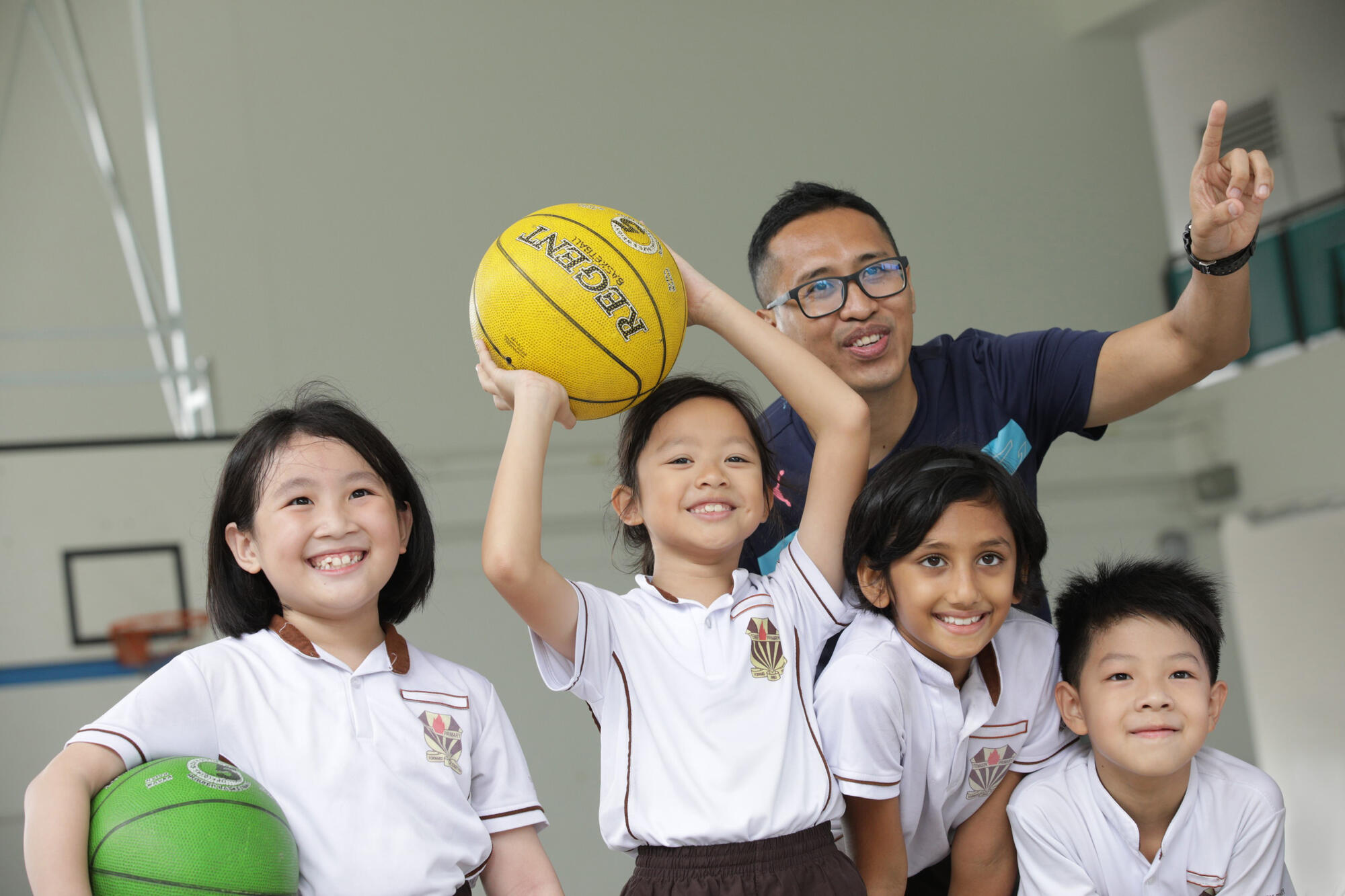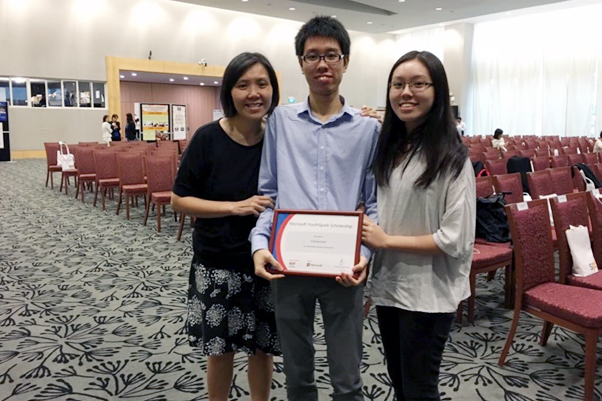Recently, I attended the launch of KidSTART Sea Adventures, an interactive stage drama at Aliwal Arts Centre. The play was written by an early childhood consultant for KidSTART, a programme overseen by the Early Childhood Development Agency (ECDA), to encourage playing as a means to help young children learn.
The play reminded me of my visit in May to a pre-school in Spain, where a group of parent volunteers put on a play in the backyard to entertain the children. The children participated and teachers helped those who were bashful to express themselves.
The preschool visit took place during the International Summit on the Teaching Profession (ISTP) in Valencia, Spain. It was an annual gathering of ministers and union leaders from various high-performing and rapidly improving education systems to discuss new challenges to education.
Academic competencies such as literacy and numeracy did not occupy the minds of summit delegates as participating countries had largely achieved them. Instead delegates from the UK, US, Sweden, Finland, Estonia and many others, spoke about a world characterised by rapid technological change, an overload of information and disinformation, industry disruption and growing polarisation.
The fundamental challenge for a young person now is how does one live with oneself, and how does one live with others in a world filled with a cacophony of voices, with more opinions than facts, more arguments than agreements.
Delegates expressed a sense of urgency on the need to develop character and social-emotional competence in our young. This will not only enable them to handle the overwhelming noise from information overload but also distil the right lessons and find guideposts to move forward. Discussions thus centred on schools and the community prioritising life skills, self-awareness, critical thinking, responsible decision-making and active citizenry.
Developing self-awareness and confidence
To thrive in a world filled with noise, confusion and uncertainty, we need to start from within – a sense of one’s strengths and weaknesses, efficacy or competence, and the belief that we can recover from setbacks and learn from them.
Singaporean students have typically scored very well in the Organisation for Economic Co-operation and Development’s (OECD) Programme for International Student Assessment (PISA) in Reading, Mathematics and Science, and other 21st century competencies. But, in PISA 2018, they expressed greater fear of failure despite higher self-efficacy.
For example, more of our students reported that failing made them worry about not having enough talent or doubt their plans for the future. While a rational and moderate sense of fear may motivate students to work hard and strive for better performance, excessive fear can be disabling.
Students lacking self-confidence may wrongly assume that investing more effort in an activity is a waste of time, undermining any motivation to persevere which makes success less likely – a self-fulfilling prophecy. It may also impact our young’s desire to make a difference to the world around them as they feel helpless and lack a sense of agency. A fear of failure also threatens the social and emotional well-being of students, being associated with stress, anxiety, burnout and depression.
How do we build self-confidence in our children? As a society, we must truly embrace and develop multiple pathways of success and stop reducing our children’s endeavours to a singular obsession with grades. We also have to stop connecting our sense of self-worth with extrinsic performance indicators and affirm our children for their efforts at progress.
At the same time, we also need to understand better how we can guide and be role models for young children so that they develop self-awareness and confidence from a young age. Is it just about praising and rewarding effort? It is not as simple as that.
Unproductive efforts lead nowhere, and we do not want to be encouraging our young when they are adopting unhelpful methods. Instead, we should be looking at how we encourage and affirm progress and all the different strategies and hard work our young are putting in to achieve progress.
It is also not about telling our young that they can reach any goal they desire. Everyone has different strengths and weaknesses which leads to different outcomes. So, as family members and as a community, how do we help our children recognise their strengths and weaknesses, work with them to identify goals, create an environment where they are encouraged to try, and try again when they fail and provide them with the opportunities and resources to adjust strategies to achieve progress towards their goals?
Schools, parents and the community
The ISTP discussions came to a consensus that schools are not just spaces for academic learning, but also safe spaces which support the development of a child’s identity and provide opportunities for them to interact with their peers, parents, teachers and the community. Schools often are a child’s first interaction with the wider world.
In our primary schools, teachers help students to have a better understanding of their personal values and how to respond should they feel stressed, have negative emotions, or face challenging circumstances such as bullying. For older students, teachers facilitate discussions on contemporary issues and encourage students to share their views respectfully, be open to varied opinions with empathy, and feel empowered to take positive and constructive action.
For some of our young children, explicit instruction may be needed. The TRANsition Support for InTegration (Transit) programme was launched by the Ministry of Education (MOE) in 2021 to help selected Primary 1 children who struggle with regulating their emotions. They are taught self-management skills and students who have graduated from Transit show improvement in their ability to interact with others while paying attention to the environment and the reactions of others.
Teachers continue to work hard to expand their repertoire of strategies to champion a growth mindset and create a caring and enabling school environment.
So it is good for us, parents, to understand more about how schools are evolving and creating platforms for our children to develop as individuals. Schools actively promote co-curricular activities so that children can develop their interests and build confidence.
Through sports, they pursue excellence and learn teamwork. Honing their skills through art and music similarly offers them opportunities to gain self-awareness and personal mastery.
Parents risk undoing the positives from these initiatives if they mistakenly see it as another platform to judge success and failure of the children or a platform to get a certificate to be ahead of others.
Strong relationships with family
Having strong relationships with their family and peers can also serve as anchors for our children in a volatile and complex world. Our children have the confidence to try when they know that they will not be judged and will not face rejection should they fail. The Ministry of Social and Family Development (MSF) has designated 2022 as the Year of Celebrating SG Families and rolled out the Celebrating SG Families Pledge to encourage family members to show love and concern, respect and appreciation for one another.
The MOE and MSF are working to further equip parents with necessary resources like the Parenting Resource Repository and the Families for Life Parenting resources website where evidence-based tips can be used to strengthen parent-child relationships and support a child’s holistic development. A child may feel more comfortable sharing their feelings and mistakes and accept that life may have its ups and downs if there is a warm and nurturing environment at home.
The community is also an important part of the equation because our children pick up cues from the environment around them. The tone of discussions that happen online and in person shapes their views on how society views success and failure and how “big-hearted” society is. If our children are frequently exposed to online negativity, it could dent their self-confidence, dissuade them from constructive pursuits, or worse, cause them to lose a sense of agency. We create the world our children live in. Engaging in discussions on contemporary issues involves intellectual skills such as critical thinking. But importantly, it also requires respect and empathy, openness and humility, and the emotional maturity to be comfortable with not always being right or having the answers.
Only then will our young synergise what they see around them, build their personal abilities and be in good stead to navigate a complex world – knowing when to act and how best to act, to bring about positive change.
Our school systems, parents, and community partners must work together to help youths develop a strong sense of self-identity, confidence and capacity. This includes an ability to forge positive relationships with others. This way, our children and youths will feel enabled and empowered to tackle the challenges of the future.
Sun Xueling is Singapore’s Minister of State for Social and Family Development and Minister of State for Home Affairs. She was formerly the Minister of State for Education.
This article was first published in The Straits Times.






